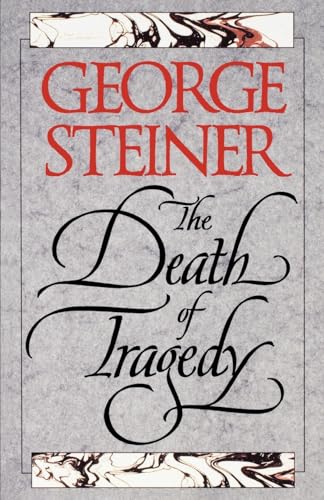The Death of Tragedy
George Steiner
BOOK REVIEW

In a literary landscape where the echo of tragedy seems to be fading, George Steiner's The Death of Tragedy emerges as a thunderous declaration of its significance. This complex exploration doesn't merely scratch the surface; it dives deep into the very marrow of culture, revealing the threads that once tied our most profound fears, joys, and moral dilemmas to the dramatic arts. The significance of tragedy-a genre that has molded human experience from the days of Aeschylus to the modern stage-beacons for a reconsideration that is compelling, urgent, and provocative.
Steiner's sweeping argument can be likened to a maestro conducting a symphony of philosophical thought and literary critique. He argues that modernity has effectively snuffed out the raw potential of tragedy-its capacity to confront the human condition in its starkest form. This isn't just a lament for what was lost; it is a clarion call to acknowledge how the absence of tragedy has skewed our understanding of self and society.
Tragedy has been the crucible in which the most profound questions of existence are forged. In exploring the echoes of Sophocles and Shakespeare, we cannot overlook how their works delved into moral ambiguity and the complexity of fate-topics we often shy away from in contemporary discourse. Steiner's criticism decries the sanitized, palatable narratives that dominate modern storytelling, filling a void with spectacle rather than substance. This is precisely where his prose resonates: it demands recognition of the hardships of existence, urging readers to confront the tumultuous emotions that tragic narratives evoke.
What makes The Death of Tragedy even more riveting is its ability to provoke visceral reactions. For readers who resonate with the melancholic beauty of Euripides's themes or the tragic flaws of Shakespeare's characters, Steiner's text is like an urgent whisper: treasure the discord, the suffering, the catharsis. The absence of tragedy is not just an artistic loss-it is a fundamental departure from our ability to process the messy realities of life. Steiner invites you to feel this absence as profoundly as one experiences a wound or a loss.
Cognizant of his own literary lineage, Steiner imbues his work with an erudition that transcends the conventional. Influenced by the likes of Nietzsche and the psychoanalytic insights of Freud, he navigates through a maze of historical contexts-offering a rich examination of how tragedy's decline mirrors cultural and philosophical shifts throughout the ages. From the downfall of the Greek pantheon to contemporary nihilism, each chapter is interwoven with anecdotes that enthrall the mind while tugging at the heartstrings.
However, the audience's reception of this provocative text seldom travels a linear path. Some readers laud Steiner's ability to challenge the status quo, while others argue that his somber tone feels overly dogmatic, dismissing the vibrancy of contemporary drama that challenges norms in its own right. This dichotomy of opinion reveals the very essence of Steiner's inquiry-what does it mean to grasp the fragility of existence in a world so often dismissed through laughter or distraction?
The ruminations in The Death of Tragedy do not sit lightly on the soul. They strike chords of nostalgia and longing for an era when the stage was the sacred ground for grappling with existential crises. Today, as we scroll through an endless parade of streaming content, the hollow echo of tragedy rings louder than ever. It begs for a return-a reclamation of those emotional depths that once defined us. Are we willing to dive back into that abyss, to face the truth that stares back at us, crammed in the fanged jaws of despair and enlightenment?
Steiner's gripping narrative compels you not only to reflect but to act. It pushes you toward a renaissance of thought-a revival of the tragic that could reshape the cultural syntax of our lives. As you turn the pages, remember: in recognizing the death of tragedy, we may also discover the pulse of our own humanity, ready to face the storm of existence with renewed vigor and insight.
So, consider Steiner's work not as merely a text, but as an emotional journey-a reminder that beneath the surface of our ordered lives lies an ocean throbbing with the raw power of tragedy, waiting for us to dive in once more.
📖 The Death of Tragedy
✍ by George Steiner
🧾 382 pages
1996
#death #tragedy #george #steiner #GeorgeSteiner